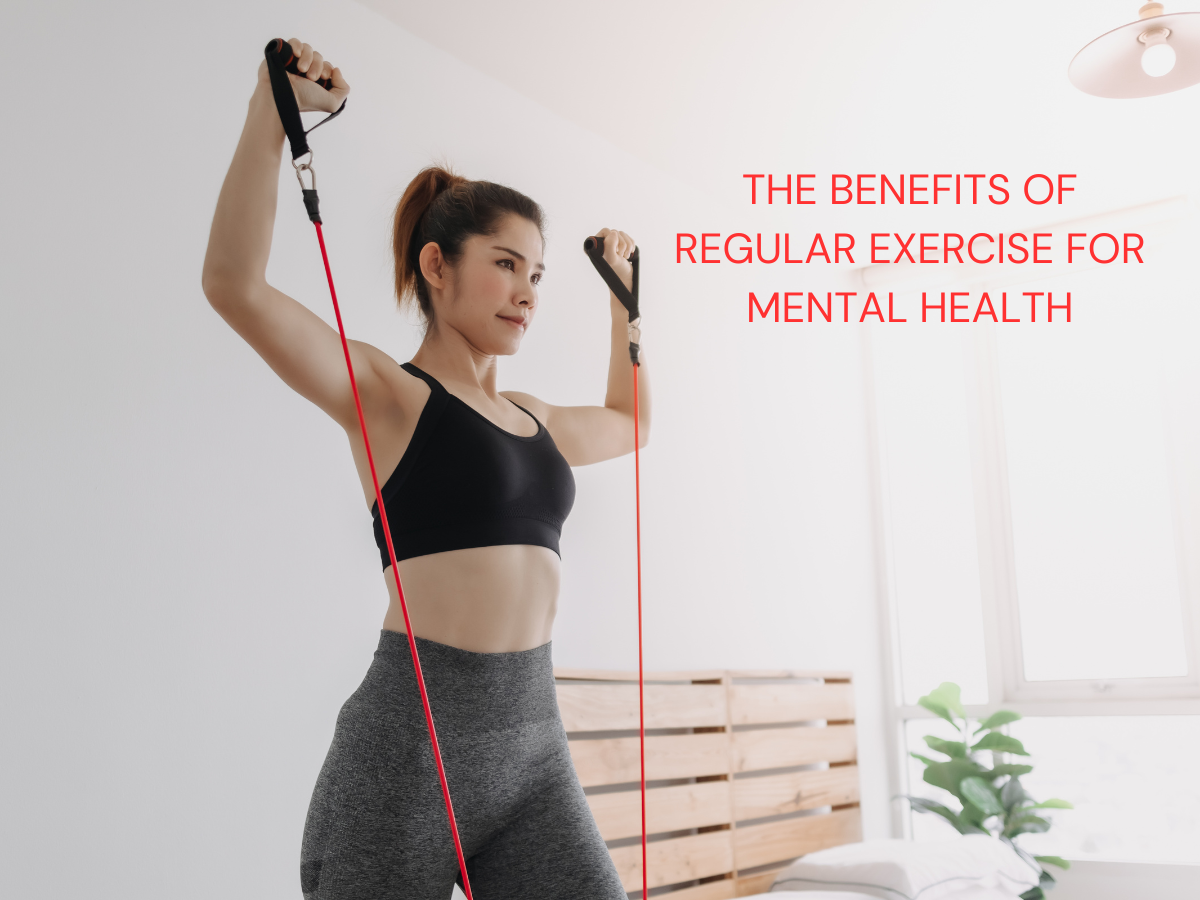Incorporating regular exercise into your routine is widely recognized for its physical health benefits, but its impact on mental well-being is equally profound. Exercise is not just about building muscle or losing weight—it also plays a crucial role in maintaining and improving mental health. Here’s how regular physical activity can benefit your mental health and enhance your overall quality of life.
1. Reduces Symptoms of Depression and Anxiety
Exercise has been shown to be an effective treatment for depression and anxiety. Physical activity increases the production of endorphins, often referred to as “feel-good” hormones. These natural chemicals in the brain help to alleviate feelings of sadness and anxiety. Additionally, exercise can stimulate the production of other neurotransmitters like serotonin and dopamine, which are linked to mood regulation and overall happiness.
2. Boosts Cognitive Function
Engaging in regular exercise has been linked to improved cognitive function and memory. Physical activity increases blood flow to the brain, which helps to enhance cognitive abilities and reduce the risk of cognitive decline. Studies suggest that exercise can improve attention, processing speed, and executive function, making it easier to focus and think clearly.
3. Enhances Sleep Quality
Quality sleep is vital for mental health, and exercise can help improve sleep patterns. Regular physical activity promotes deeper, more restful sleep by helping to regulate the sleep-wake cycle. Additionally, exercise can reduce symptoms of insomnia and help alleviate issues related to sleep disorders.
4. Reduces Stress
Exercise is a powerful stress-reliever. Physical activity stimulates the production of endorphins, which act as natural painkillers and mood elevators. Regular exercise can help to lower levels of the stress hormone cortisol and provide a healthy outlet for stress and tension. Activities such as walking, jogging, or yoga can be particularly effective in managing stress.
5. Improves Self-Esteem and Confidence
Regular exercise can significantly boost self-esteem and confidence. Achieving fitness goals, whether it’s running a mile, lifting heavier weights, or mastering a new yoga pose, can foster a sense of accomplishment and improve self-worth. The physical changes that come with exercise, such as increased strength and improved body composition, can also enhance body image and self-confidence.
6. Promotes Social Interaction
Exercise can be a great way to connect with others and build social support networks. Group fitness classes, sports teams, or exercise groups provide opportunities for social interaction, which can help reduce feelings of loneliness and isolation. Social engagement through physical activity can also contribute to improved mental well-being and a greater sense of community.
7. Provides a Healthy Distraction
Exercise offers a constructive distraction from daily worries and challenges. Engaging in physical activity allows individuals to shift their focus away from stressors and immerse themselves in the present moment. This mindful engagement can lead to improved mood and mental clarity.
8. Builds Resilience
Regular physical activity helps to build resilience by teaching individuals how to cope with challenges and setbacks. The discipline and perseverance required for exercise can translate into improved coping strategies and mental toughness in other areas of life.
How to Incorporate Exercise into Your Routine
- Find Activities You Enjoy: Choose exercises that you find enjoyable to ensure that you stay motivated. Whether it’s dancing, swimming, hiking, or yoga, finding activities you love can make exercise feel less like a chore.
- Set Realistic Goals: Start with achievable goals and gradually increase the intensity and duration of your workouts. Setting realistic goals can help you stay committed and track your progress.
- Make it Social: Exercise with friends, join a class, or participate in group activities to add a social element to your routine.
- Stay Consistent: Aim for at least 150 minutes of moderate aerobic activity or 75 minutes of vigorous activity each week, along with strength training exercises. Consistency is key to reaping the mental health benefits of exercise.
Conclusion
The benefits of regular exercise extend far beyond physical health. By incorporating physical activity into your routine, you can enhance your mental well-being, reduce symptoms of depression and anxiety, improve cognitive function, and boost overall mood and resilience. Making exercise a regular part of your life is a powerful and effective way to support both your body and mind.
Start today by finding an activity you enjoy and making it a part of your daily routine. Your mental health will thank you.







